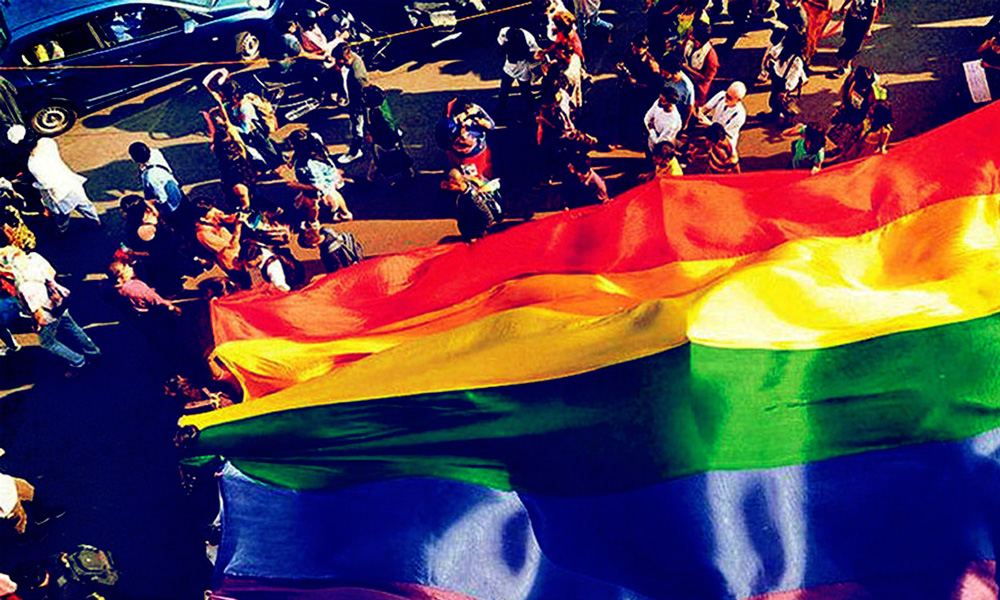
Mental Health Disorders, Alcohol Misuse More Common In LGB People: Study
Writer: Ankita Singh
A literature lover who likes delving deeper into a wide range of societal issues and expresses her opinions about the same. Keeps looking for best-read recommendations while enjoying her coffee and tea.
Others/World, 18 Feb 2021 10:49 AM GMT
Editor : Shubhendu Deshmukh |
Shubhendu, the quint essential news junky, the man who loves science and politics in equal measure and offers the complete contrast to it by being a fan of urdu poetry as well.
Creatives : Rajath
A free spirit who find meaning in life with the virtue of creativity and doing job par its excellence, animal lover and traveller by heart.
The findings of a new study suggest that lesbian, gay and bisexual people are more likely to suffer from mental health conditions and report alcohol or drug misuse than the heterosexual people.
Lesbian, gay and bisexual people are more likely to suffer from mental health conditions and alcohol or drug misuse than the heterosexual people, according to a new study published by London researchers.
The study was conducted by the researchers at University College Of London(UCL) in collaboration with the University of East Anglia and City, University of London.
The authors of the study are now calling for government action to ensure equity in health and social care services to sexual minority groups.
Apart from this, they are also calling for policies that improve societal understanding, starting with encouraging schools to intervene at an earlier stage by encouraging tolerant attitudes towards sexual minorities across the whole school community.
The researchers analysed data from the 2007 and 2014 Adult Psychiatric Morbidity Surveys (APMS). These surveys combined the data collected from samples of 10,433 people between 16 to 64 years of age from across England.
The surveys were conducted via face-to-face interviews, and computer self-completion contained data relating to sexual orientation, common mental disorders (CMD), hazardous alcohol use, and illicit drug use.
Also, information related to bullying and discrimination, religious identification and childhood sexual abuse were recorded.
The data reflected no improvement or change during this period, and LGB people remain at higher risk of poorer mental health than heterosexuals.
The prevalence of depression and anxiety disorders among bisexual people was 40 per cent, while among lesbian and gay people it was 28 per cent.
This is significantly higher when compared with heterosexuals, that stands at 16 per cent.
Following the same trend, illicit drug use was highest among bisexuals at 37 per cent, while for lesbians and gays, it was 25 per cent. However, for heterosexuals, it was 10.5 per cent. Alcohol misuse was highest in lesbian and gay people, at 37 per cent and for bisexuals, it stood at 31 per cent. For heterosexuals, alcohol misuse stood at 24 per cent.
The researchers have also found evidence to suggest that exposure to bullying and discrimination may help explain the observed poorer mental health in lesbians and gays but not in bisexual people.
According to the research, there was no evidence to support any apparent contribution of differences in religious affiliation or experiences of adversity such as childhood sexual abuse in the association between sexuality and mental health problems.
The lead author, Dr Alexandra Pitman at UCL Psychiatry, said that this study highlights the ongoing disparity in mental health between LGB people and heterosexuals.
Pitman also remarked that in order to reduce this persistent inequality, we must ensure that health and social care professionals are better trained to identify and care for the wellbeing and mental health needs of sexual minority groups, who are often made to feel invisible within national health systems.
Apart from this, Pitman suggested that secondary schools must implement policies and practices that create supportive environments for sexual minority students. According to him, it can include providing (and actively promoting) access to a member of staff who is a designated minorities contact person and to whom students can talk in confidence regarding their experiences of discrimination, bullying, or mental health difficulties.
He further added that schools in the UK could also learn from positive experiences of Gay-Straight Alliance (GSA) clubs functioning in US high schools, where students benefit from access to a hub for socialising, support, and activism.
He also mentioned implementing anti-discrimination strategies and policies in health care institutions, reported The Hindustan Times.
The study's senior author, and professor Michael King at UCL Psychiatry, said, "Our research shows that stigma, and social exclusion based on sexual orientation may be more subtle and enduring than we imagine. Despite greater public acceptance and legal changes to ensure equality, the lived experience of a proportion of LGB people remains negative. We would emphasise, however, that these data also show that the majority of LGB people have robust mental health and lead happy lives."
The co-author of this publication, Dr Joanna Semlyen from The University of East Anglia, said that they know that sexual minorities are at increased risk of poor mental health than the heterosexual population. She said that this paper highlights that those inequalities did not change between the two study collection points of 2007 and 2014.
Dr Joanna Semylen further suggested that we need to continue to monitor health in sexual minority populations as standard but also design studies to understand what causes these inequalities and develop interventions to reduce them.
 All section
All section














